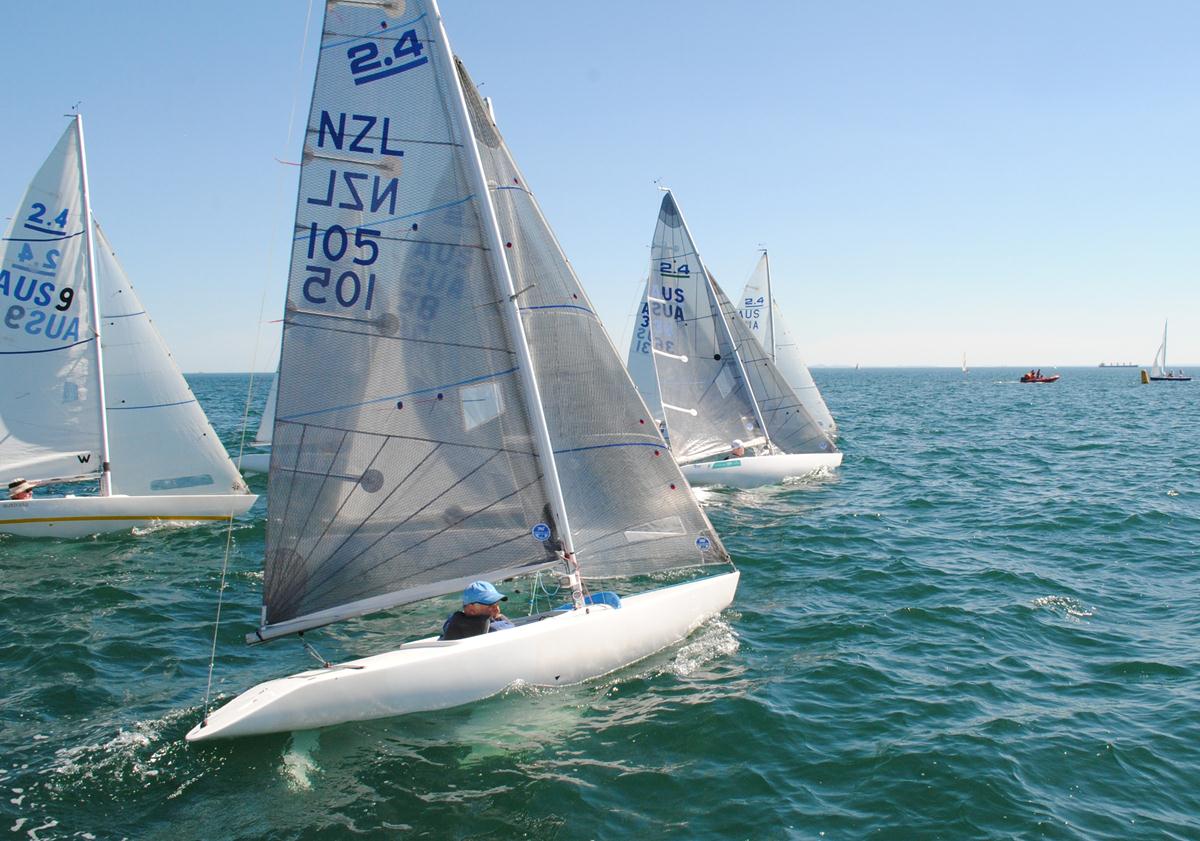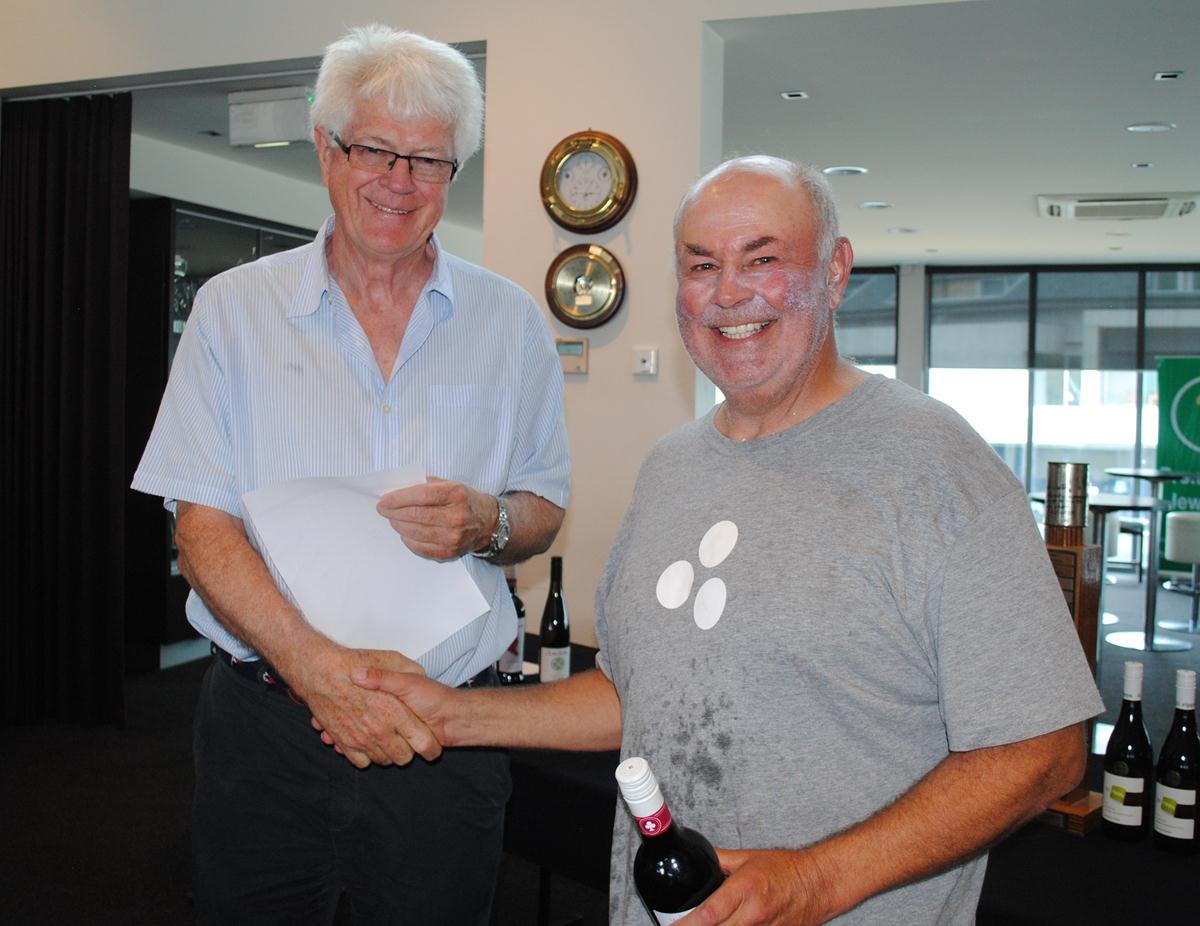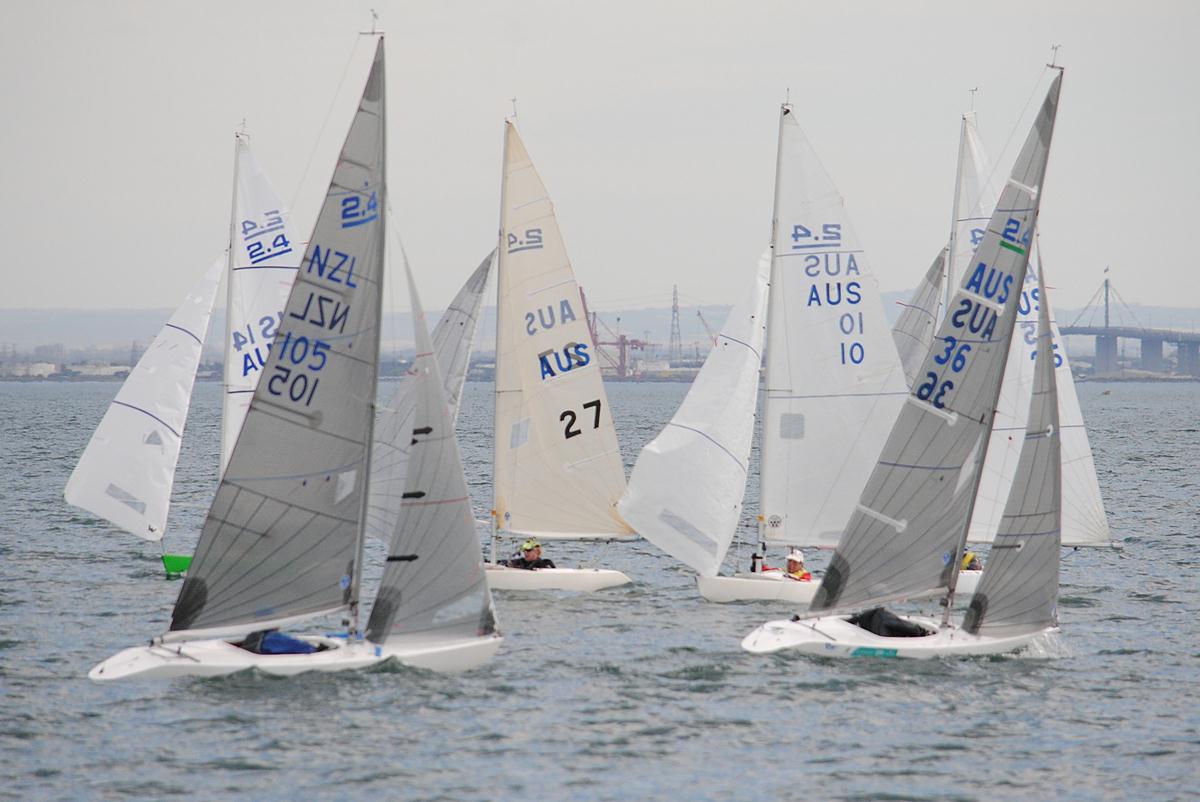New Zealand 2012 Paralympian Paul Francis has placed 2nd at the Australian Championships for the International 2.4mR class, at the regatta held over the Labour Day holiday weekend at Royal Brighton Yacht Club.

Eleven 2.4mR sailors travelled from New South Wales, ACT, Tasmania and New Zealand for the event. Australia and New Zealands’ representatives at the 2012 Paralympic Games, Matt Bugg (TAS) and Paul Francis (NZL), were competing as part of their preparations for Rio in 2016.
The RBYC Race Management Team was able to complete all eight scheduled races despite the challenging shifty conditions over the three days. Breezes ranged from 5 to 15 knots.
Matt Bugg (TAS) was first to the line in five races to secure a three point win in the Australian Championship from Paul Francis (NZL) who won the other three. Third overall was Peter Russell (ACT).

The Class Association Pointscore winner was Peter Warren (ACT), ahead of Lisa Blackwood (TAS) and Neil Patterson (VIC).
The 2.4mR originated from Stockholm in 1983 by local yacht designers who used the “R Metre” rule to create a single-person keelboat the 2.4mR. It is a thoroughbred racer that has the complexity of a sophisticated keelboat, without the high costs, and the fingertip feeling of a dinghy. As a sister to the bigger 6m, 8m and 12m yachts, she possesses the typical powerful Metre boat sailing style. Since the helmsperson sits down in the boat facing forward with all the trim controls within arms reach, the sailing is not physically demanding and racing is done in one open class with men, women, young and old, able-bods and sailors with a disability all racing together. Because the crew weight is always close to its centre of gravity, the 2.4mR is insensitive to differences in size of the helmsperson. Instead, 2.4mR racing focuses on sophisticated sail trim, tactics and strategy.

In 1992, the 2.4 Metre Class attained “ISAF International Class Status” and official World Championships have been held annually since then, attracting 60-100 boats. Since the 2.4mR is so well suited for sailors with physical disabilities, it was selected as the single-person keelboat discipline for the Paralympics in Sydney 2000 where sailing for the first time was a full medal sport. The class is now included in most rounds of the ISAF Sailing World Cup. The biggest fleets are found in the Scandinavian countries, Italy, England and Australia.


